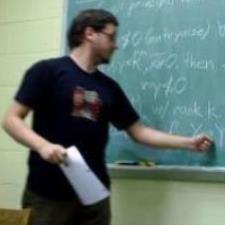Dalton P. answered • 04/28/24
Instructor Access To Webassign Assignments With 10+ Years Of Tutoring!
Base case: If n=0, then a_0=(-3)^0+4^0=2 which matches the given a_0=2.
Inductive hypothesis: Assume a_n=(-3)^n+4^n holds for every n.
Prove the n+1 case: We have a_{n+1}=a_n+12a_{n-1}=(-3)^n+4^n+12((-3)^{n-1}+4^{n-1})=(-3)^n+4^n+12(-3)^{n-1}+12(4)^{n-1}=(-3)^n+4^n-(-12)(-3)^{n-1}+12(4)^{n-1}=(-3)^n+4^n-(4)(-3)^{n}+(3)(4)^{n}=(-3)^n-4(-3)^n + 4^n+(3)4^n= -3(-3)^n+4(4)^n=(-3)^{n+1}+4^{n+1}, thus proving the n+1 case, finishing induction.
It's hard to write in text, so feel free to reach out, but that is the answer.




